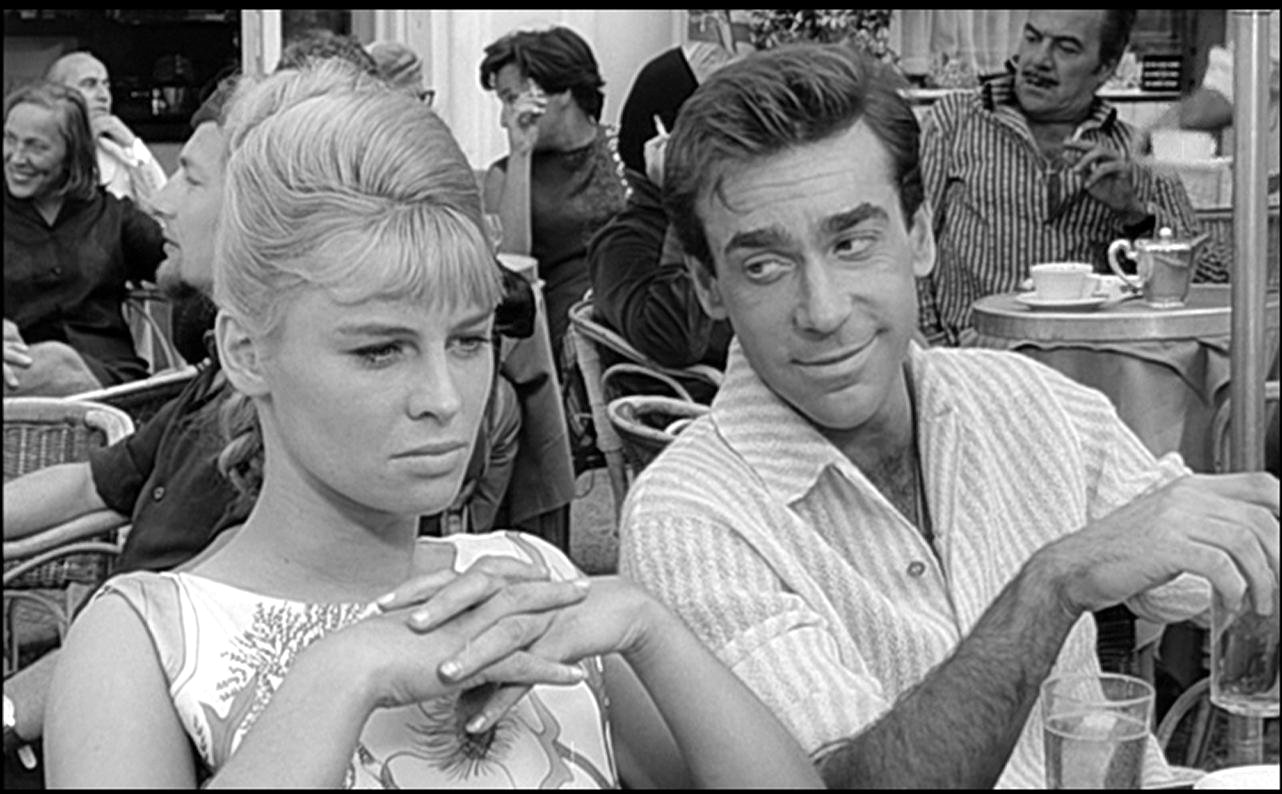Gay Best Friend: Malcolm in "Darling" (1965)
 Thursday, October 21, 2021 at 6:05PM
Thursday, October 21, 2021 at 6:05PM A series by Christopher James looking at the 'Gay Best Friend' trope
 Not pictured: The waiter that Diana (Julie Christie) and Malcolm (Roland Curran) were checking out.How can one be truly breaking convention if the act of breaking away is itself a convention? This is the plight of Diana Scott, the role that earned Julie Christie an Oscar win for Best Actress. Diana uses her feminine wiles to rise to the top of the English fashion scene, creating scandal everywhere she goes. She breaks all the conventions of how a “good girl” of the 50s would behave. While this makes her exciting, what is behind her social climbing antics? Is her rebellion ushering in a new progressive wave, or is she just rebelling to rebel? If the case is the latter, why is that something people should respect, rather than jeer?
Not pictured: The waiter that Diana (Julie Christie) and Malcolm (Roland Curran) were checking out.How can one be truly breaking convention if the act of breaking away is itself a convention? This is the plight of Diana Scott, the role that earned Julie Christie an Oscar win for Best Actress. Diana uses her feminine wiles to rise to the top of the English fashion scene, creating scandal everywhere she goes. She breaks all the conventions of how a “good girl” of the 50s would behave. While this makes her exciting, what is behind her social climbing antics? Is her rebellion ushering in a new progressive wave, or is she just rebelling to rebel? If the case is the latter, why is that something people should respect, rather than jeer?
The tagline of Darling (1965) reads: “A powerful and bold motion picture...made by adults...with adults...for adults!” It’s amazing to see what was bold by 1965 standards. An English production, Darling fittingly feels like part French-New-Wave, part mainstream Hollywood. The topics of sex, abortion, homosexuality and the blanket “sin” of adult life hang over every scene, even if very little is explicit. This illustrates that the “gay best friend” trope, among others, was once considered shocking or bold. By the 1990s, as we've witnessed in this series, boldness gave way to the expected, as the trope became overused...


